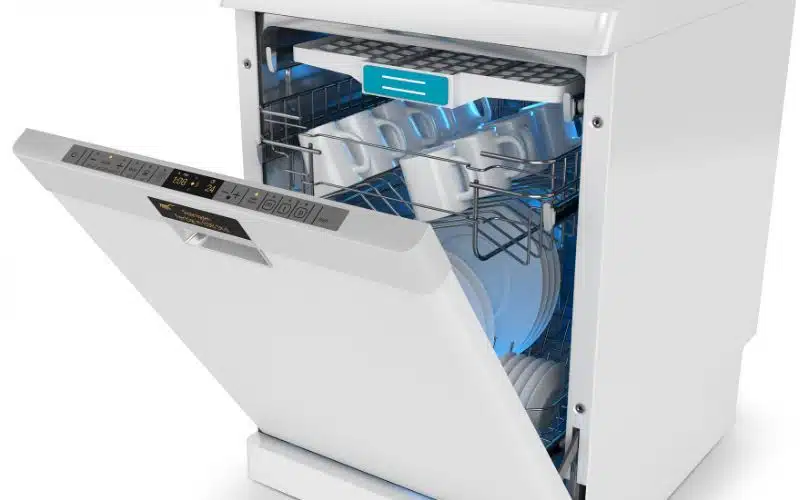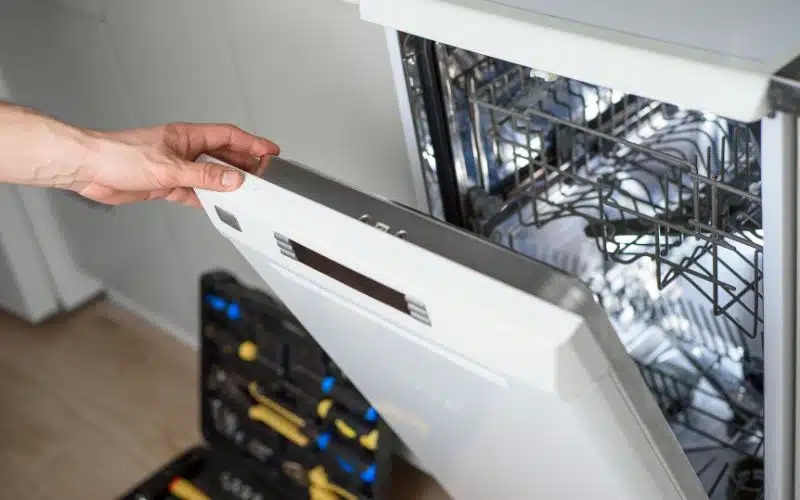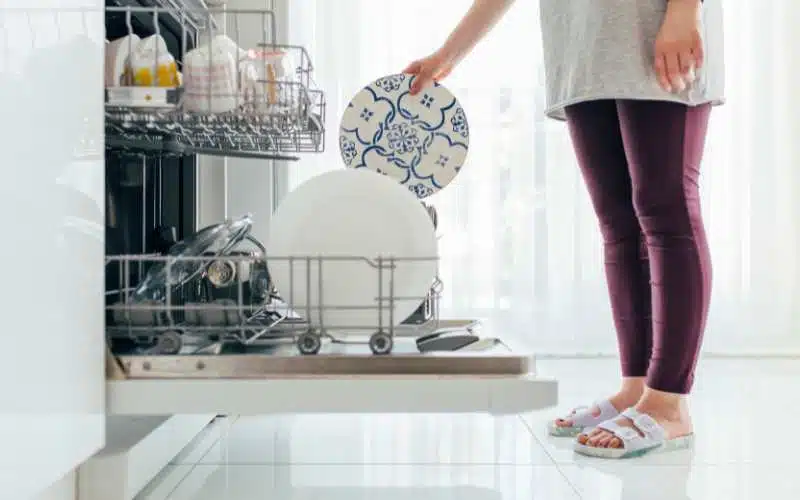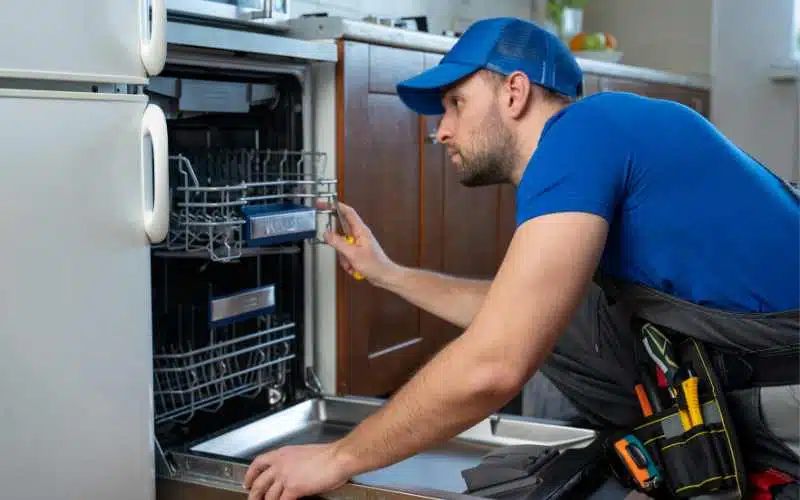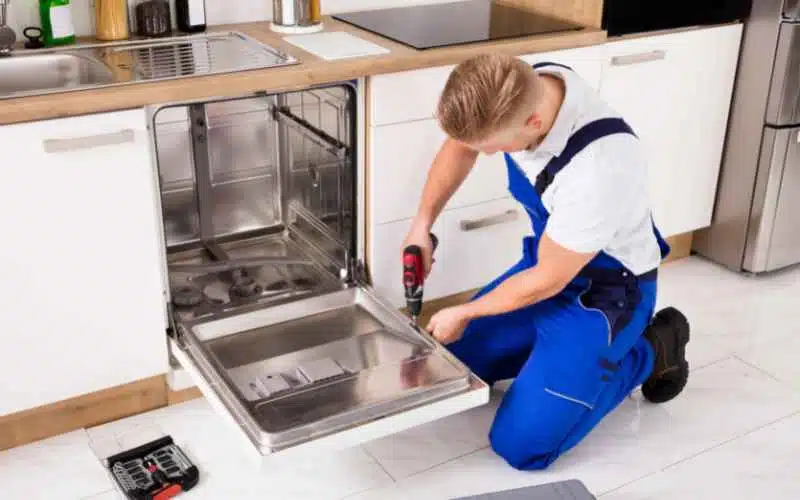Dishwashers are a common sight in many kitchens, but how they connect to power might surprise you.
Some are plugged into a wall, just like a toaster, but others are hardwired, meaning their wires are directly connected to the home’s electrical system.
This setup can seem mysterious. Why are some dishwashers hardwired? Is it safe? Does it make them work better? Let’s dive into the world of dishwashers and uncover these hidden details.
Deciding between a hardwired and plug-in dishwasher hinges on safety, efficiency, and convenience. Hardwired models ensure a secure, high-performance connection, while plug-in dishwashers offer easy installation and flexibility. Always follow local electrical codes for safe setup.
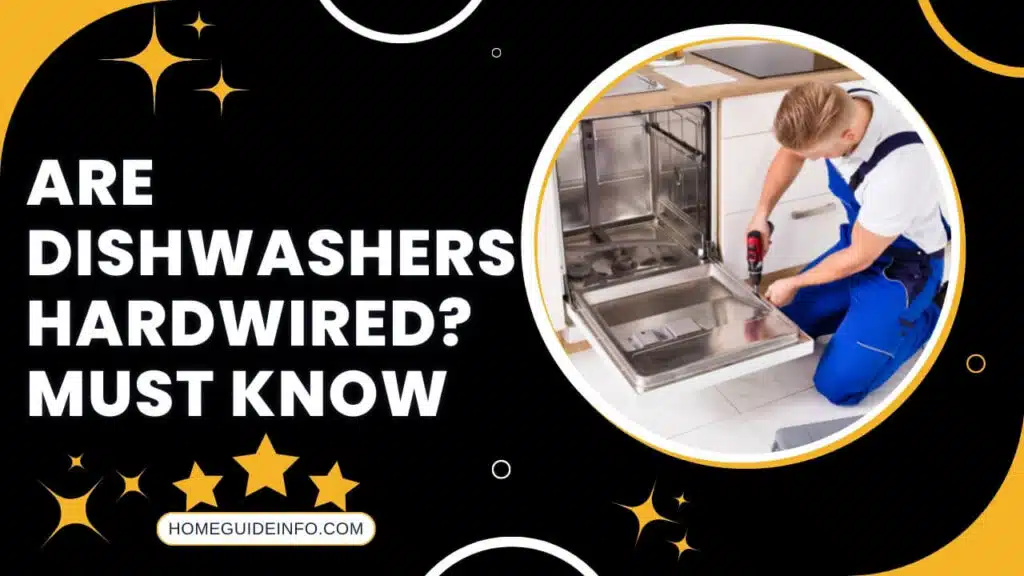
Are Dishwashers Hardwired or Plug-in?
When installing a dishwasher, you must decide between hardwiring it or using a plug-in connection. Both methods have their pros and cons.
Hardwiring a Dishwasher:
- Safety: Hardwired dishwashers are connected directly to your home’s power supply. This minimizes risks like electric shock.
- Efficiency: Without power cord limitations, hardwired dishwashers often have a better flow of current, which can improve performance.
- Neatness: With no cables on the floor, hardwired connections can make your kitchen look tidier.
Plug-in Dishwashers:
- Flexibility: You can easily unplug and move plug-in dishwashers if needed.
- Installation: These require just a standard electrical outlet, making the set-up simpler.
Here is a table outlining some key differences:
| Dishwasher Type | Installation | Electrical Safety | Kitchen Neatness | Flexibility | Child Safety |
|---|---|---|---|---|---|
| Hardwired | Professional | More Secure | Tidier | Limited | Safer |
| Plug-in | DIY-Friendly | Less Secure | Less Tidy | High | Riskier |
Remember, while hardwiring can prevent accidents, especially with children who might play with cords, plug-in models offer the advantage of being movable without much hassle.
Before you choose, think about these factors: safety, the number of dishes you’ll wash, and if you plan to move the dishwasher.
If you go for a plug-in dishwasher, check that it doesn’t exceed the power your outlet can handle.
For hardwired ones, professional installation is crucial to ensure everything’s done correctly.
Ensure that any dishwasher you install follows local building and electrical codes to keep you and your home safe.
Are all Dishwashers Hardwired?
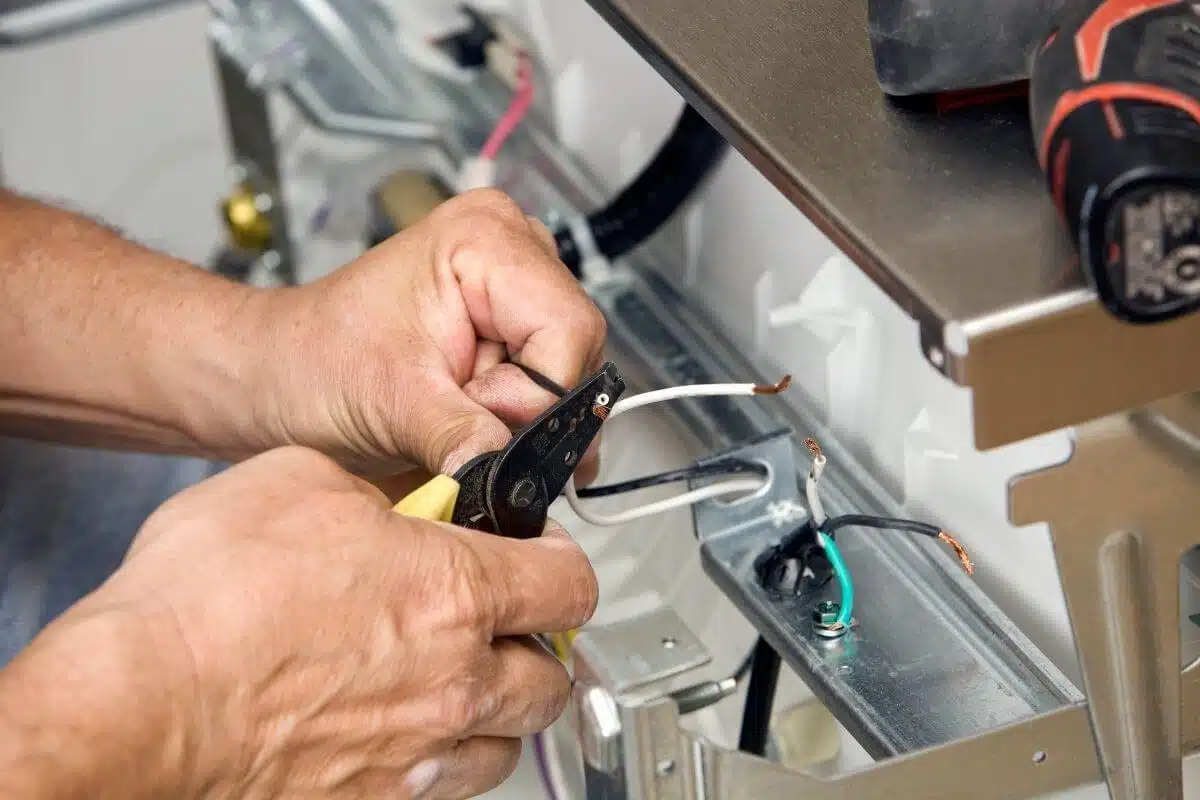
You might wonder if you have to connect dishwashers directly to your home’s electrical system.
Well, it’s not always the case. Some dishwashers simply plug into a wall socket. This means they come with a cord and you can plug them in just like a toaster or a lamp.
Here are a few things to consider about dishwasher installation:
- Power Supply: If your home has a strong electrical supply, typically 120 volts or more, your dishwasher does not need to be hardwired.
- Moving: If you move often or might change the dishwasher’s location, a plug-in model is more convenient. No hardwiring means easy to disconnect and move.
Let’s look at the advantages and disadvantages of hardwired dishwashers:
| Hardwired Dishwasher | Description |
|---|---|
| Advantages | More secure connection. Often considered more aesthetically pleasing as there are no visible cords. |
| Disadvantages | Not simple to disconnect or move. You might need an electrician for installation or if you run into issues. |
Bosch is a popular brand known for dishwashers. Some Bosch models are hardwired, while others come with a cord to plug in.
Whether you choose a hardwired or plug-in Bosch dishwasher depends on your personal needs and electrical setup.
Remember, the main goal is to ensure your dishwasher gets the right amount of power to run properly.
If the power cord can handle the current, there’s usually no need to hardwire. But always be aware of the risks associated with the electrical setup you choose.
How do I Know if my Dishwasher is Hardwired?
Identifying your dishwasher’s connection type is crucial for both safety and functionality.
If you’re trying to figure out if your machine is hardwired, here are some key points to guide you:
- No power cord: If your dishwasher arrived without a power cord, it’s likely hardwired.
- Direct connection: Look for an electrical connection that goes straight into your home’s electrical system.
- Check under the sink: Often, the electrical wires for a hardwired dishwasher connect to a junction box located under the sink.
Hardwired dishwashers are linked directly to the electrical supply, following specific wire color-coding:
| Wire Color | Connection |
|---|---|
| White | Connects to the black wire |
| Black | Connects to the ground screw |
| Green | Connects to ground screw |
Remember, a hardwired setup means no wall socket is involved. If there’s no socket near your dishwasher, it indicates a hardwired connection.
Pay attention to your electrical circuit. Safety codes may make hardwiring a necessary method in your home, eliminating the use of a regular plug-in socket for the dishwasher. Electrical codes aim to minimize safety hazards, so follow them strictly.
In conclusion, a hardwired dishwasher will have a fixed electrical connection without the need for a separate power supply via a plug and wall socket.
Always prioritize safety and consult a professional when dealing with your home’s electrical system.
Can You Put a Plug on a Hardwired Dishwasher?
Converting a hardwired dishwasher to a plug-in model is possible. But remember, it’s not as simple as changing a light bulb.
You need the right tools and electrical knowledge to do it safely. First, find the right power cord. It’s important because the cord must handle the dishwasher’s current.
A 15 amp three-prong cord is often the best choice. It can take on big currents and helps to avoid shocks and fires.
You might need a licensed electrician for this job. They have the skills to make sure it’s done right.
Here’s a checklist to consider:
- Electrical Cord: This must match the dishwasher’s current needs.
- Tools: Screwdrivers, wire strippers, and electrical tape.
- Skills: Understanding of electrical systems; otherwise, hire an electrician.
- Safety: Turning off the power is a must before starting.
Avoid using extension cords for a permanent installation. They’re not safe for long-term use with dishwashers.
It’s not a hard project if you’re handy and have basic electrical skills. But if you’re not sure, it’s easier and safer to get a professional.
A licensed electrician can convert your dishwasher quickly and make sure it’s done without any risks.
